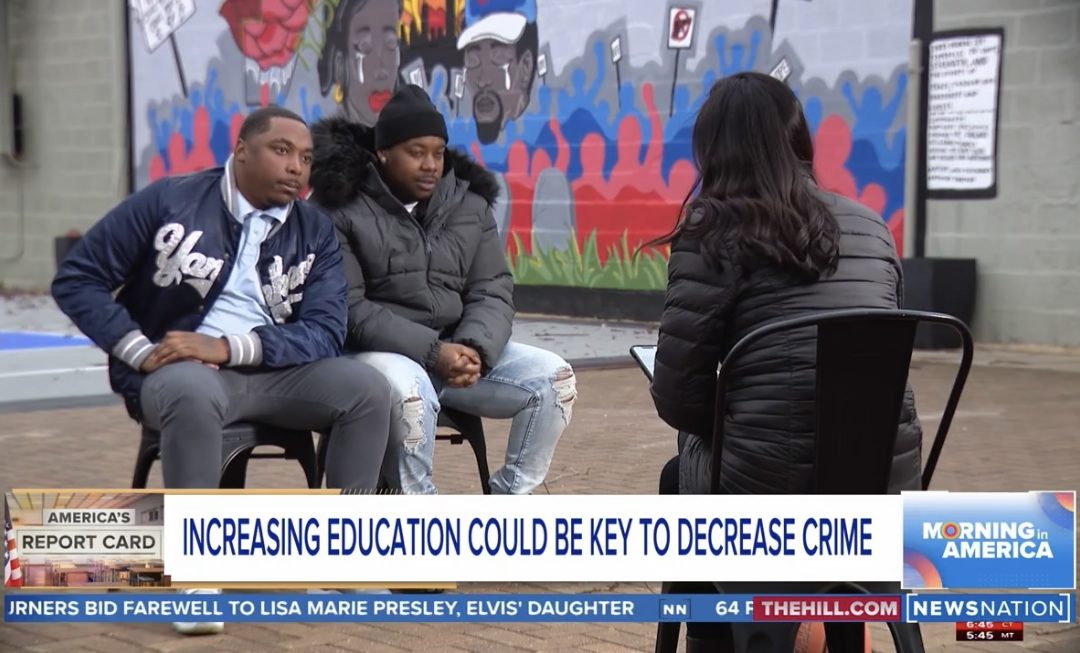(NewsNation) — Criminologists say if the U.S. spent more money on education across the nation and worked to get more young people to graduate from high school, it would reduce violent crime.
Two young men have done just that — using education to escape a background that set them on a path to crime.
Lorenzo Taylor and Dantrell Jelks grew up in Roseland, one of the most dangerous suburbs in Chicago. Both were in and out of jail since they were 12 years old, with no direction. Both have been shot several times.
“It traumatized us, but it also made us angry,” Taylor said. “It made us engage in street life.”
In Roseland, the violent crime rate is nearly 400 percent higher than the national average. In the U.S, states with higher academic achievement show lower crime rates than the national average. States that invest more in higher education also show declining crime rates.
Taylor and Jelks were on the path to follow the role models they saw in their community.
“When I was growing up, I wanted to be one of the biggest drug dealers in the neighborhood,” Taylor said.
That was what the two men saw around them. People selling drugs, making money, and committing violence. It came with a cost.
“I lost my older brother and my two cousins to gun violence,” Jelks said.
Both of them hit rock bottom.
“I was shot in 2020, in October,” Taylor said.
But they were angry with the circumstances they found themselves in.
“In that instance, we both wanted to retaliate,” Taylor said.
Gun violence is the leading cause of death for black men between the ages of 18 and 34. People of color also face a higher risk of prison, violent crime. At the same time, there are also barriers to education in communities of color.
“I was at a breaking point, what am I going to do with myself? Am I going to live? Or am I going to die tomorrow?” Jelks said.
That’s when a friend introduced Jelks to Chicago CRED, a program that works with young men in Chicago to interrupt inner city gun violence and provide a high school diploma. The program is led by former Education Secretary Arne Duncan.
“He was caught in that life but wanted to change and we helped, walked with him, guided him,” Duncan said of Jelks.
Duncan is careful to give credit to the participants in his program who are determined to change the way they’re living.
“He changed his own life. We don’t change lives, we just bring out what is in people to blossom and flourish,” Duncan said.
Taylor also joined the program.
“Once we got into the program, everything started falling in the right place for us. We got our high school diplomas, we were able to get employed.”
They got off the streets, they got jobs. Then they began to help other young men that were once just like them.
“Put the guns down and pick each other up. People, we put each other down in our communities, it’s time for a change,” Taylor said.
Both men are fathers and told NewsNation they are teaching their children a different way to live.
